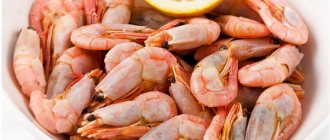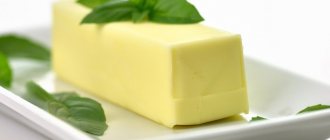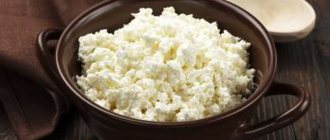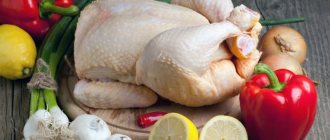The shelf life of quail eggs allows you to purchase this healthy product for future use so that you can indulge in delicious boiled eggs, fried eggs or a tender omelet in the morning for several weeks. Eggs are widely used not only in cooking, but also in cosmetology, because even in one copy a rich set of vitamins and nutrients is compactly packaged.
Traditionally, chicken eggs are the most popular in our kitchen because they are medium in size, and even one of them can become a complete snack in tandem with fresh vegetables. In addition, their price is quite affordable.
Quail eggs have a higher cost, but even a small child cannot afford one for breakfast. But they look very advantageous on a salad platter, surrounded by greens and cherry tomatoes. In addition, they have gained popularity among consumers due to their dietary and other beneficial properties, which are superior to their chicken counterpart in many respects.
How many days to store?
Quail eggs differ from chicken eggs not only in shape, size and composition, but also in preservation. The product retains its beneficial properties at low temperatures.
Shelf life of raw eggs
You should not keep the eggs in the room for a long time: this will significantly reduce their shelf life. The product retains its beneficial properties for the maximum amount of time when the temperature is controlled.
Eggs are stored:
- in a room with low humidity – 25-35 days,
- in the refrigerator (on the shelf, not on the door) - 55-65 days.
After two months, the product can be used in cooking to prepare:
- salads,
- bakery products,
- second courses.
Quail eggs contain a protein substance - lysozyme, thanks to which the product has such a long shelf life . But over time, it contains fewer nutrients.
How many days do boiled eggs last?
The finished product is stored for a short period of time. It must be used within seven days.
It is important to comply with the terms and conditions:
- Boiled eggs should be stored when they are hard-cooked.
- Soft-boiled ones are stored for 2-3 hours.
- In the absence of a refrigerator, the finished product retains its beneficial properties for 8-11 hours. To prevent the eggs from cracking and spoiling ahead of time, after boiling they are wrapped in newspaper or paper.
- In the refrigerator, the shelf life increases - 5-6 days. A whole product is stored longer, damaged, with a cracked shell - 1-2 days.
Be sure to read:
How to quickly defrost dough: effective methods, basic rules
Eggs are placed separately from fish products, citrus fruits and spices - they “absorb” the smell and spoil faster.
In salads
The shelf life of quail eggs in salads is much shorter and is 24-48 hours. The time to consume the finished salad depends on the ingredients and dressing.
Salads dressed with mayonnaise are stored in a cool place for no more than a day. A prepared dish with olive oil can be placed on the table after 48 hours, but if it does not contain any perishable product.
Frozen
Freezing significantly increases the shelf life of quail eggs. This method of storing products has some difficulties. However, the duration of suitability for human consumption increases significantly. It ranges from 6 months to a year.
There are some important tips to follow when freezing:
- use special containers with cells or a plastic tray for ice cubes to put in the freezer;
- containers for freezing must have a lid;
- You can’t freeze eggs in their shells;
- you can freeze the yolks and whites separately, fill the cells with whole eggs, or mix the yolks with whites and drop the mixture into separate compartments with a teaspoon;
- after complete freezing, the cubes with quail eggs can be transferred to a plastic bag or larger container, and the molds can be used for another batch of eggs;
- It is recommended to prepare the products after complete natural defrosting;
- Be sure to wash the products before freezing.
The large amount of liquid in eggs gives the effect of expansion during freezing. Therefore, the container cells should not be filled completely, leaving a reserve of volume so that the form does not deform or burst.
Frozen quail eggs are the leaders in terms of shelf life at home. At the same time, they retain all the beneficial properties and taste of the product.
Secrets of refrigerator storage
Eggs retain their beneficial qualities for approximately two months , but experienced housewives claim that this time can be increased.
It is worth following a few simple rules:
- Quail eggs are stored in their original packaging. If it is not there, buy a tray.
- Observe the temperature regime – +3…+5 ˚С.
- The testicles can be preserved longer by using beeswax. Hard-boiled eggs are placed in melted wax so that it covers the shell on all sides, and wait to cool. Place in the tray with the sharp end down. If there is no wax in the house, use any fat.
- The current shelf life is increased by three days: the eggs are dipped in a solution of potassium permanganate and wiped with sunflower oil.
- Refrigerator doors are not suitable for long-term storage; it is better to choose lower drawers. You can pour certified salt into the tray.
- The eggs are stored frozen in the freezer for 9-11 months. They must be free of cracks.
These simple rules will help preserve the product for a long time without losing its beneficial properties.
Useful tips
Some people choose the wrong product, thereby shortening its shelf life. What to do before purchasing:
- Open the package, carefully inspect the surface for chips and microcracks. The whole casing guarantees long-term storage. You need to look at the expiration date indicated on the packaging.
- Ignore the color of the shell. The color and number of spots depend on the breed of bird. They do not affect the taste or ability of the product to be stored for a long time.
Sources
- https://SaucePizza.ru/udalenie-zapahov/usloviya-hraneniya-perepelinyh-yaic.html
- https://delus-opyt.ru/veshchi/hranenie-perepelinyh-yaic.html
- https://MoiPrava.pro/produkty/godnost/perepelinye-yaytsa
- https://comp-plus.ru/hranenie/perepelinye-yajtsa-sroki-i-usloviya-hraneniya
- https://ld58.ru/hranenie/srok-hraneniya-perepelinyh-yaic-v-holodilnike.html
- https://HotelBars.ru/pitanie/gde-hranit-perepelinye-yajca.html
- https://ProHranenie.ru/produkty/myaso-ptitsa-ryba/perepelinye-yajtsa.html
- https://yajka.ru/poleznoe/srok-godnosti-perepelinyh-yaits.html
- https://KeepOK.ru/srok-godnosti-perepelinyih-yaits
- https://hozzi.ru/hranenie/skolko-yajtsa-v-holodilnike-syrye-perepelinye
- https://myff.ru/hranenie/kak-hranit-perepelinye-yaytsa-skolko-oni-hranyatsya-syrye/
- https://domcvetyhobbi.ru/hranenie/skolko-hranyatsya-perepelinye-yajca-v-holodilnike.html
[collapse]
Storage at room temperature
The room should be warm and dry. But the air temperature should not exceed +25˚С.
If you adhere to the norm, the shelf life is one month. When humidity is high, bacteria begin to multiply in the testicles.
If the temperature in the apartment is not maintained, eggs are stored in water. They are placed in a container or bowl, filled with water, and 1 tbsp is added. l. table salt.
Be sure to read:
How long can propolis be stored: tincture and dry form?
If they float up, the product is spoiled.
What are we guided by?
We have studied a lot of materials on the storage and production of quail eggs. And we discovered an interesting discrepancy - the shelf life stipulated by GOST and the manufacturers’ recommendations differ greatly. This is explained simply. Existing quail farms are interested in regular sales of the product, the same aspect is important for trading enterprises selling the product.
GOST requirements are compiled solely on the basis of safety and health benefits. The document spells out the smallest aspects - temperature conditions, types of goods and other differences, which we decided to talk about in detail.
Note! GOST number 31655 - 2012 determines the technical conditions of quail, turkey, and all other eggs, except chicken eggs. If you wish, you can find the document on the Internet and familiarize yourself with it in detail.
The document is valid in Russia, Moldova, Belarus and Kyrgyzstan. According to GOST, packaging of quail products is carried out on the first day, and this is where the permissible shelf life is calculated. Manufacturers are well aware of this, but often desperately “fib” it in order to increase the sales period.
How to easily peel quail eggs?
Quail eggs can be easily peeled in a variety of ways. To facilitate the cleaning process, after heat treatment they are placed in cold water.
Quail eggs have a dense shell and will take longer to clean than chicken eggs.
Method 1
Sequencing:
- Place the product in a bag or wrap it in cling film.
- Transfer to a hard surface (countertop, board).
- Press with your hand: the shell should crack.
- Gently pull the film - the shell will be easily removed.
Method 2
Sequencing:
- Place the eggs in a container.
- Fill with water and close the lid.
- Shake - the shell cracks and is easily removed.
conclusions
- Quail eggs are a popular, healthy product, which contains a large amount of vitamins, macroelements, as well as mono and poly acids.
- Vitamin U is especially valuable. In winter, when there is no greenery, raw egg yolk is its only source. But at temperatures above 60 ᵒC it decomposes. Therefore, it is recommended to consume quail eggs raw.
- The benefits of this food product for the human body are preserved provided that the rules and shelf life are followed.
Store correctly and be healthy!
We take into account the date of purchase and laying of eggs
It is important to consider the packaging date of eggs when purchasing them at the store. It is indicated on the top of the plastic box. An equally important factor is the date of laying: it is stamped on the eggs themselves.
It is worth buying only fresh product - the period from the date of demolition to purchase should not exceed three weeks.
Having bought eggs at the market, the buyer will not know the exact date. The product should be consumed within two weeks, after checking its freshness.
Before purchasing, you should ask the seller for the demolition period; it should not exceed 7-10 days.
You should not buy the product at the market - the eggs may be spoiled or stale.
It is recommended to cook the eggs during the first month - during this period they are most useful. After the shelf life expires, they may not deteriorate, but they will not bring any benefit.
Signs of corruption
Insufficient freshness of quail eggs is determined in several ways. To do this you can:
Weigh the egg. Fresh weighs 12 g. Over time, the contents dry out and the weight may be less than 9 g.- Place the testicles in a container of water. Fresh ones will sink to the bottom of the dish, old ones will float to the surface.
- Shake the egg. In a fresh one, it will be quiet when shaken; in an old one, you can hear something gurgling.
- Fresh eggs do not have a yolk that spreads.
The freshest eggs are dietary, marked “D”. Unmarked eggs are considered fresh up to 10 days from the date of production.
If there is no refrigerator
Don't be upset if you don't have a refrigerator at home. Food will retain nutrients without low temperature.
To do this, place at the bottom of a wooden basket:
- sand,
- sawdust,
- salt,
- wood ash,
- bran.
The eggs are wiped with fat, placed in a box, and covered with a lid. When the room is dry, they are stored for 30-50 days.
Be sure to read:
Is it possible to store honey in the refrigerator and freeze it: expert opinion
Dietary product - truth or myth. Calorie content
Quail eggs are truly a dietary product. They are only slightly higher in calories than chicken (158 Kcal/100 g) and the energy value is 168 Kcal/100 g,
However, they can be safely added to the diet of people watching their weight. This is due to the high content of easily digestible protein, essential amino acids and a rich vitamin and mineral composition, which allows you to meet the body’s needs even with a small amount. It is worth noting that eggs are dietary only for the first week after laying, after which they are considered table products.
By the way! Quail eggs are rarely infected with salmonella because they have a very strong shell under the shell, which serves as reliable protection against the penetration of pathogenic microorganisms.
Quail eggs benefits
The benefits of quail eggs have been proven by many scientists around the world. In addition to antibacterial, immunostimulating and anticancer properties, they have the following qualities:
- in comparison with chicken, they differ in a large amount of microelements such as potassium and phosphorus (almost 5 times), as well as iron (almost 4.5 times);
- have anti-allergenic properties, which allows even small children to include them in the diet without fear;
- Based on the protein ovomucoid contained in quail eggs, a medicine is made that is successfully used in medicine to treat various allergic reactions in both children and adults;
- for men, regular consumption of food has a beneficial effect on potency, according to Bulgarian scientists, even better than a medical drug such as Viagra;
- The product is widely used in cosmetology - various masks for hair and face are made on its basis.
Quail and chicken - is there a difference in storage and timing?
Food safety differs from each other.
It is important to control the number of days and temperature conditions.
| Characteristic | Quail eggs (days) | Chicken eggs (days) |
| Indoors (wet) | 25-35 | 20-23 |
| In the refrigerator (raw) | 55-65 | Homemade – 85-90, store-bought – 25-30 |
| In the refrigerator (boiled whole) | 5-6 | 13-15 |
| In the refrigerator (boiled, with damaged shells) | 1-2 | 3-4 |
About the benefits
This product contains a huge amount of useful substances that contribute to the proper functioning of almost every system in the human body.
Includes:
- calcium;
- phosphorus;
- carotene;
- iron;
- cobalt;
- copper;
- cystine;
- potassium;
- methionine;
- lysine;
- tryptophan;
- vitamins B1 and B2;
- protein;
- glutamic, nicotinic and aspartic acids.
In order to fully obtain useful substances from the product, you should follow the rules for storing quail eggs, and also not exceed the norm for their consumption. An adult is allowed to eat 5-6 pieces, and children - no more than 3.











